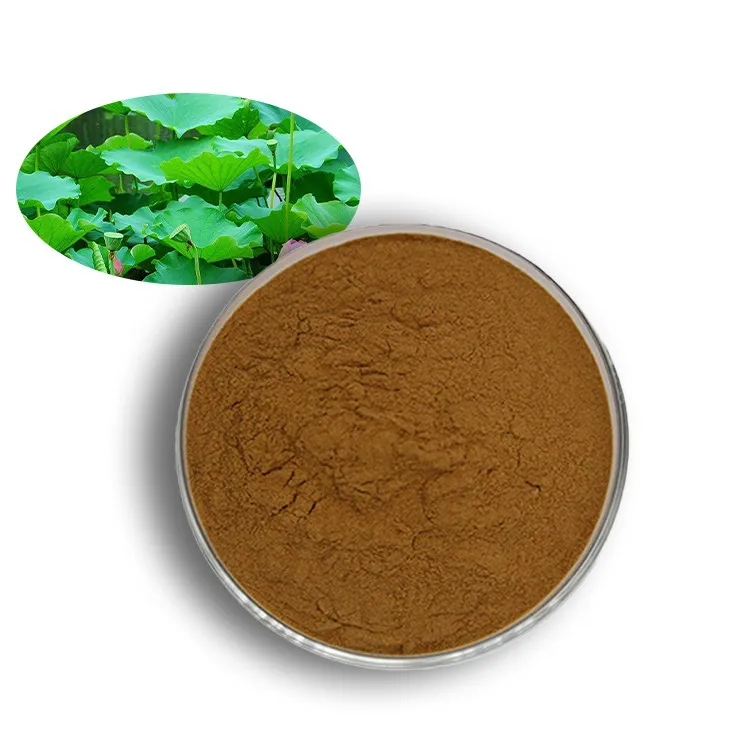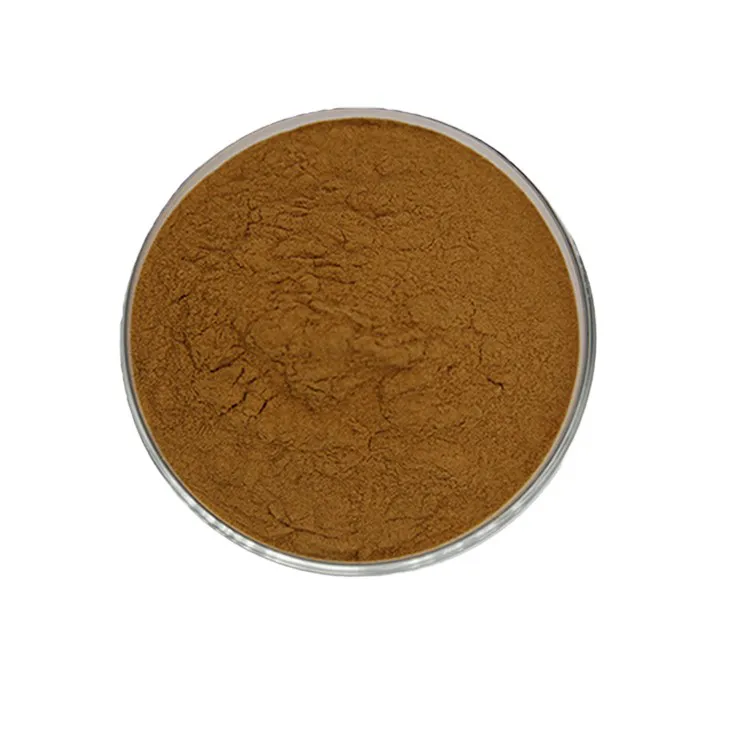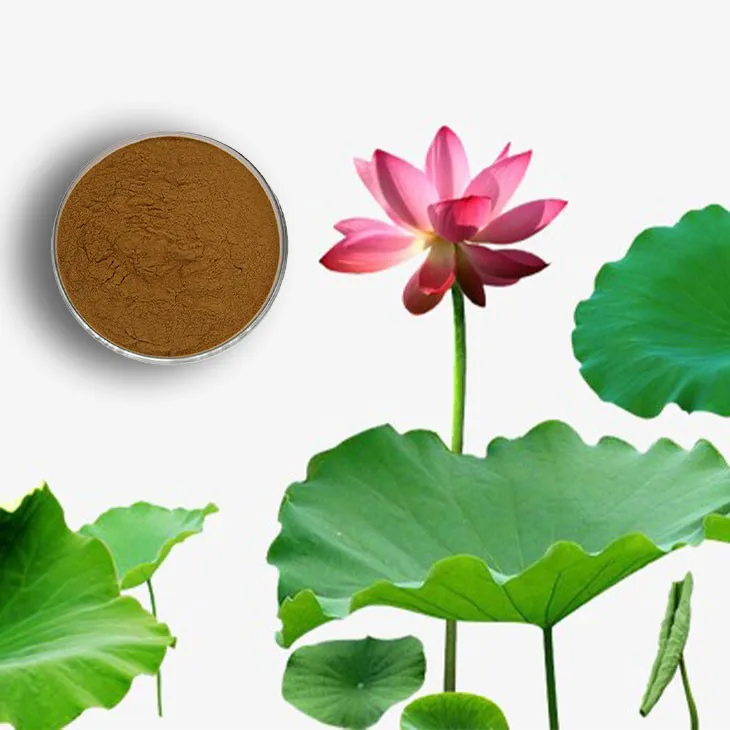- 0086-571-85302990
- sales@greenskybio.com
Nature's Bounty lotus leaf extract.
2024-11-30

Introduction to Lotus leaf extract
Lotus leaf extract has been emerging as a significant element in the health and wellness arena. It is sourced from the lotus plant, an entity that has been held in high esteem across numerous cultures for its symbolic representation of purity and beauty. The extract is a reservoir of diverse bioactive compounds, which endow it with a wide range of potential health benefits.

Bioactive Compounds in Lotus leaf extract
Alkaloids
One of the crucial components within lotus leaf extract is alkaloids. These compounds have demonstrated considerable potential in the domain of weight management. Alkaloids are believed to function by interfering with specific digestive processes in the body, thereby potentially reducing fat absorption. This mechanism could be of great significance for individuals aiming to manage their body weight or combat obesity - related issues.
Flavonoids
Lotus leaf extract is also rich in flavonoids. Flavonoids are well - known antioxidants that play an indispensable role in countering oxidative stress. Oxidative stress is closely associated with a plethora of health problems, such as premature aging and chronic diseases. By scavenging free radicals in the body, flavonoids in the lotus leaf extract help to safeguard cells from damage, thus contributing to overall health maintenance.

Health - Promoting Properties of Lotus Leaf Extract
Anti - Inflammatory Properties
The lotus leaf extract is endowed with anti - inflammatory properties. Inflammation lies at the root of a host of health problems, including joint pain and skin disorders. Studies indicate that the natural substances present in lotus leaf extract can help to soothe inflammation. This can lead to an improvement in the quality of life for those suffering from inflammatory - related conditions. For example, in the case of joint pain, the anti - inflammatory action of the extract may potentially reduce pain and swelling, enhancing joint mobility.
Benefits for Weight Management
As mentioned earlier, the alkaloids in lotus leaf extract can play a role in weight management. In addition to reducing fat absorption, they may also have an impact on appetite regulation. By influencing the body's hormonal signals related to hunger and satiety, lotus leaf extract could potentially assist individuals in controlling their food intake. However, it is important to note that while lotus leaf extract may offer support in weight management, it should be used in conjunction with a balanced diet and regular exercise regime.
Combatting Oxidative Stress
The flavonoids in lotus leaf extract are key players in the fight against oxidative stress. Oxidative stress occurs when there is an imbalance between the production of free radicals and the body's ability to neutralize them. This imbalance can lead to cellular damage and is implicated in various diseases, including heart disease, cancer, and neurodegenerative disorders. By providing antioxidant protection, lotus leaf extract helps to maintain the body's redox balance, thereby reducing the risk of developing these diseases.

Forms of Consumption and Precautions
Forms of Consumption
Lotus leaf extract can be consumed in various forms. One of the most common forms is as a dietary supplement. These supplements are available in different formulations, such as capsules, tablets, or powders. Additionally, in some traditional medicine practices, lotus leaf extract may be used in the form of herbal teas or tinctures. However, it is crucial to ensure that any form of lotus leaf extract product is obtained from a reliable source to guarantee its quality and safety.
Precautions
While lotus leaf extract offers potential health benefits, there are also some precautions to be aware of. Firstly, individuals who are pregnant or breastfeeding should consult their healthcare provider before using lotus leaf extract products, as there is limited research on its safety during these periods. Secondly, some people may experience allergic reactions to lotus leaf extract. If any adverse reactions such as rash, itching, or difficulty breathing occur after consuming lotus leaf extract, it is essential to discontinue use immediately and seek medical attention. Finally, it is important not to rely solely on lotus leaf extract for treating any medical conditions but rather to view it as a complementary addition to a healthy lifestyle.

Research and Future Prospects
Although there has been significant research on lotus leaf extract in recent years, there is still much to be explored. Future research could focus on further elucidating the mechanisms of action of its bioactive compounds, especially in relation to complex health conditions. For example, more in - depth studies could be conducted on how lotus leaf extract interacts with the body's immune system in the context of inflammation - related diseases. Additionally, research could be directed towards developing more effective and targeted formulations of lotus leaf extract for specific health applications. There is also a need for larger - scale clinical trials to confirm the long - term safety and efficacy of lotus leaf extract in different populations.
Conclusion
In conclusion, lotus leaf extract is a natural product with a great deal of potential in the realm of health and wellness. Its diverse bioactive compounds, including alkaloids and flavonoids, endow it with properties such as anti - inflammation, weight management support, and antioxidant activity. While it can be consumed in various forms, it is important to exercise caution and ensure its proper use. With further research, lotus leaf extract may hold even greater promise in promoting human health in the future.
FAQ:
What are the main bioactive compounds in lotus leaf extract?
The main bioactive compounds in lotus leaf extract are alkaloids and flavonoids. Alkaloids have potential in aiding weight management, while flavonoids are antioxidants that can combat oxidative stress.
How can lotus leaf extract help with weight management?
Lotus leaf extract may help in weight management as its alkaloids can interfere with certain digestive processes, which may reduce fat absorption in the body.
What role do flavonoids in lotus leaf extract play?
Flavonoids in lotus leaf extract are antioxidants. They play a crucial role in combating oxidative stress, which is associated with various health issues like premature aging and chronic diseases.
How does lotus leaf extract show anti - inflammatory properties?
Studies suggest that the natural substances in lotus leaf extract can help soothe inflammation. Inflammation is at the root of many health problems such as joint pain and skin disorders, and the extract can promote overall well - being by reducing inflammation.
In what forms can lotus leaf extract be consumed?
Lotus leaf extract can be consumed in the form of dietary supplements to potentially reap its health benefits.
Related literature
- The Bioactive Compounds and Health Benefits of Lotus Leaf Extract"
- "Lotus Leaf Extract: A Natural Approach to Anti - Inflammatory and Antioxidant Effects"
- "Weight Management and Lotus Leaf Extract: New Insights"
- ▶ Hesperidin
- ▶ citrus bioflavonoids
- ▶ plant extract
- ▶ lycopene
- ▶ Diosmin
- ▶ Grape seed extract
- ▶ Sea buckthorn Juice Powder
- ▶ Beetroot powder
- ▶ Hops Extract
- ▶ Artichoke Extract
- ▶ Reishi mushroom extract
- ▶ Astaxanthin
- ▶ Green Tea Extract
- ▶ Curcumin Extract
- ▶ Horse Chestnut Extract
- ▶ Other Problems
- ▶ Boswellia Serrata Extract
- ▶ Resveratrol Extract
- ▶ Marigold Extract
- ▶ Grape Leaf Extract
- ▶ blog3
- ▶ blog4
-
Organic Non - GMO Camu - Camu Fruit Extract.
2024-11-30
-
Nature's Bounty Copaiba Extract.
2024-11-30
-
The pure L - carnitine most worth buying.
2024-11-30
-
The best organic quercetin.
2024-11-30
-
Nature's Bounty Vitamin K2
2024-11-30
-
Kidney Bean Extract
2024-11-30
-
Alfalfa Meal
2024-11-30
-
Giant Knotweed Extract
2024-11-30
-
Ivy Extract
2024-11-30
-
Saponin Extract
2024-11-30
-
Lily extract
2024-11-30
-
Curcumin
2024-11-30
-
Sea buckthorn Juice Powder
2024-11-30
-
Cranberry Extract
2024-11-30
-
Acerola Extract
2024-11-30





















